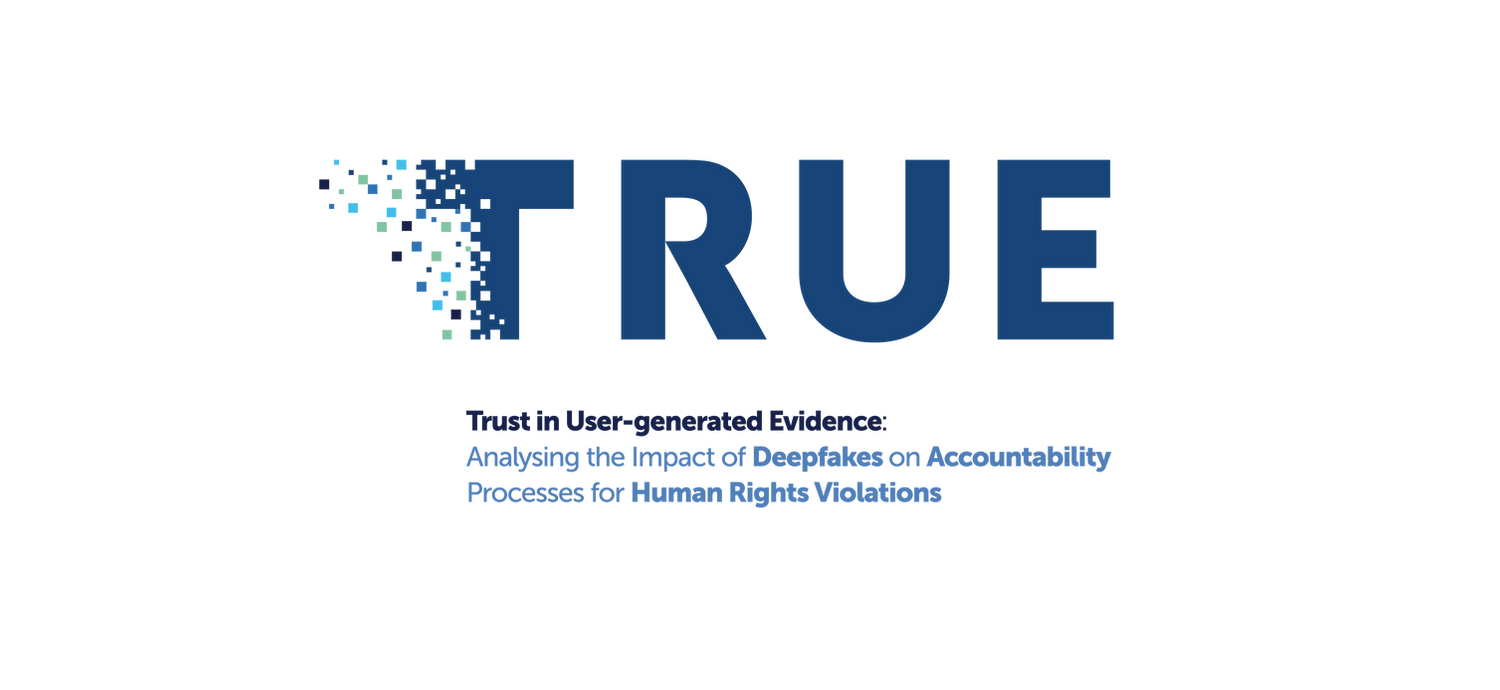
An exciting new project, funded by a UKRI Frontier Research Grant, has just launched at the Hillary Rodham Clinton School of Law and will run until 2027. The project seeks to explore the impact of deepfakes on trust in user-generated evidence in accountability processes for human rights violations.
Across the world, millions of photographs and videos depicting mass human rights violations have been, and will continue to be, created and shared online. Legal systems have already begun to use this content in prosecuting those responsible.
At the same time, the public is increasingly confronted with examples of “deepfakes”: hyper-realistic images, videos, or audio recordings created using machine learning technology, which are only likely to become more advanced and difficult to detect as the technology improves.
Many have raised concerns that the rise in deepfakes will lead to mass mistrust in user-generated evidence, and that this in turn will decrease its value in legal proceedings. This may well be the case, but no study has yet tested that assumption.
This is where the TRUE Project comes in. It will empirically examine the impact of deepfakes on trust in user-generated evidence from a unique interdisciplinary standpoint, incorporating law, psychology, and linguistics.
TRUE will be run by Professor Yvonne McDermott Rees and Dr Alice Liefgreen at the Hillary Rodham Clinton School of Law, with support from an interdisciplinary team of researchers, support staff and affiliated researchers.
Yvonne is a Professor of Law and an expert in open source information and evidence. Prior to setting up TRUE, Yvonne was the Principal Investigator on OSR4Rights, a project funded by the ESRC that examined how open source research has transformed the landscape of human rights fact-finding.
Alice, an experimental psychologist, is a Post-Doctoral Research Fellow on the project. Prior to working on TRUE, she was a post-doctoral research fellow at UCL, the University of Reading, and the Oxford Internet Institute. Alice’s research focuses on investigating the psychological underpinnings of human judgment and decision-making under uncertainty, predominantly within legal-investigative domains.
Speaking on the launch of the TRUE Project, Professor Yvonne McDermott Rees said:
“Alice and I are thrilled to have launched the TRUE project, which has been made possible through generous funding from UKRI [grant number EP/X016021/1]. The research questions we seek to answer could not be more urgent, as thousands of pieces of user-generated evidence of human rights violations are posted every day around the world and lawyers and advocates grapple to use this content in the pursuit of justice. TRUE sits with other leading Swansea University projects at the forefront of research on law and technology, including CYTREC and the Legal Innovation Lab Wales.”
Find out more about the TRUE Project by visiting the project website.
